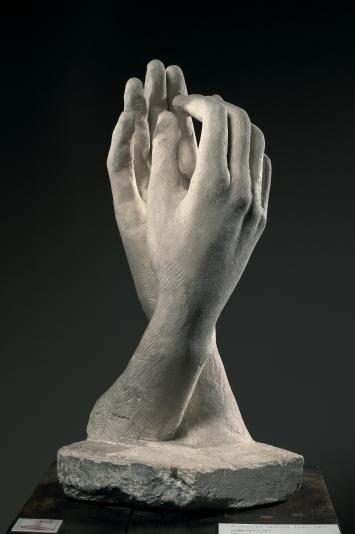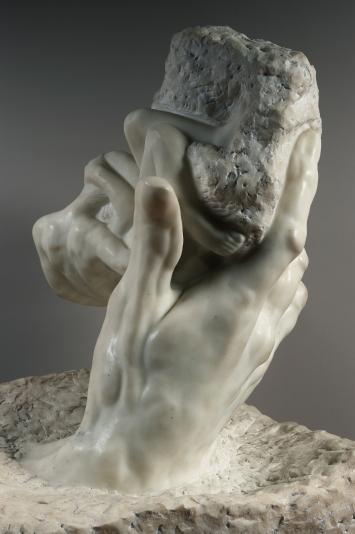Rainer Maria Rilke writes in “Letters on Cezanne” (June 28):
Basically it’s none of our business how somebody manages to grow, if only he does grow, if only we’re on the trail of the law of our own growth…
Do you notice how this sentence itself is growing, from the humble, almost business-like, beginning to the poetic coda, striking in its musical precision: on the trail of the law of our own growth?
This letter is about August Rodin, but the sentence is not about Rodin. It exists within the same law of artistic growth Rilke reverently observes in Rodin:
… Rodin does not “think about” his work but remains within it: within the attainable <…> In art, you can only stay within the “well done,” and by your staying there, it increases and surpasses you again and again.”
Here is what he writes in his monograph on Rodin, about Rodin’s focus on plane as the fundamental element of his work:
There was no arrogance in him. He devoted himself to this insignificant and difficult aspect of beauty which he could survey, command and judge. The other, the greater beauty, must come when all was ready for it, as animals come to drink when night holds sway and the forest is free of strangers.
And so in his own sentence: poetry comes when all is ready for it, and the forest is free of strangers: on the trail of the low of our own growth…
There is an organic quality to this process, growth: one cannot force it. The modern models of goal-setting, action plans, productivity and the like — they don’t apply.
Rilke’s words reminded me of a Japanese farmer I read about recently: Masasobu Fukuoka, who invented what came to be called “do nothing farming”.
Instead of pushing his fields to grow as much rice as possible (be it by using traditional farming methods or the latest scientific achievements), the farmer’s work is simply to cultivate the conditions for its natural growth, based on decades of careful observations of nature, and relying on its intrinsic intelligence.
Isn’t it also the best we can do for ourselves: rather than forcing “high performance”, productivity, self-discipline, simply create and cultivate conditions for our own growth?
What if, instead of trying to change ourselves, we simply changed the context of our lives? What if we could create (or simply see) a context that makes being the best and highest version of oneself as easy as breathing? A context that is large and expansive enough to allow space for growth.
And then one day, when the forest is free of strangers, the transformation will blossom, as though on its own….
In the beginning of life, when this growth just begins, one can be lucky enough (as I certainly was) to have such a context: to find oneself within a collective field of consciousness that uplifts, and inspires, and creates conditions for growth. Then, this effortless growth is like swimming with the flow created by the collective field.
But sooner or later comes a moment when this invisible help is not there any more.
The more you grow, the less likely you are to find yourself in a collective field you can rely upon to support your growth. You are on your own, or even swimming against the flow, with the collective field holding you back.
But there is, forever and ever present, a collective field of that always lifts you up, wherever you are on the trail of your own growth: the synergistic field of Art, all art. The highest peaks of human spirit manifested in experiential reality.
This is the field Rilke was swimming in, the ever-present context and law of his own growth…

